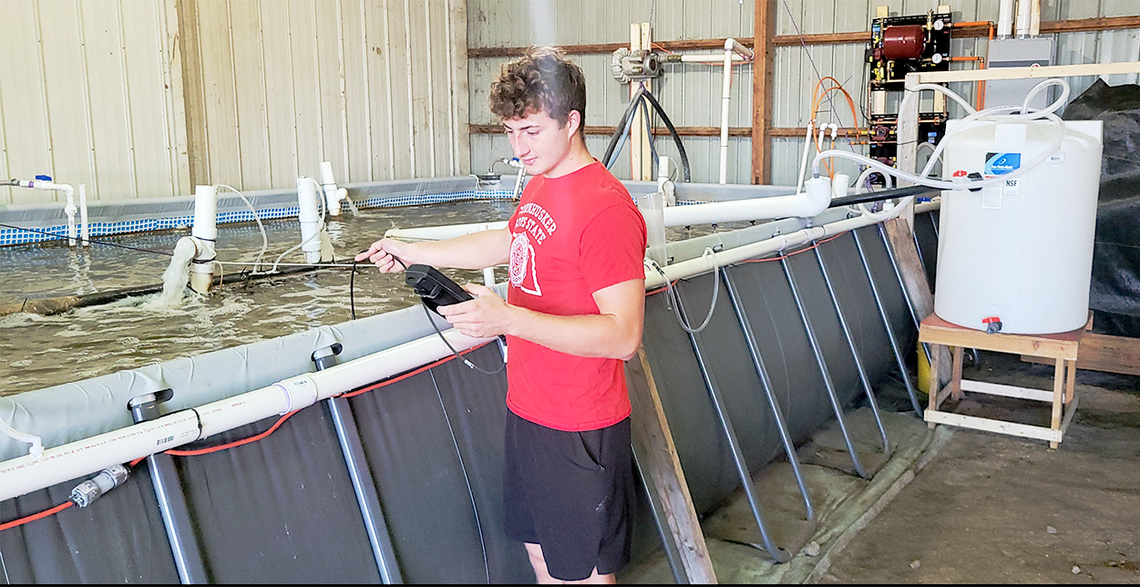During his junior year at Johnson County Central Schools, Nolan Wellensiek had an AgriScience project that advanced to the FFA’s national level. After that experience, Wellensiek, began brainstorming new ideas that could help him return to the National FFA Convention; one of those ideas was raising shrimp.
At first, Wellensiek’s goal was simply to have a national level project. Over time, however, the shrimp farm turned into a business. Wellensiek never took the shrimp farm project to the National FFA Convention. Instead, he began growing and selling shrimp to people in the Cook community and surrounding areas. He is now a freshman at the University of Nebraska in Lincoln and is no longer in FFA.
According to Wellensiek, there is only one other shrimp farm located in Nebraska. The other is located southwest of Imperial about eight miles from the Colorado border.
The pool he uses for raising the shrimp was installed in May of 2023. The pool measures 16 feet by 35 feet and is about 4.5 feet deep. The pool is located in a climate-controlled cold storage shed a few miles north of Cook. The water is heated and this helps equalize the air temperature. Wellensiek purchases the shrimp from a hatchery in Pine Island, Florida, just west of Fort Myers, Florida. He typically receives between 15,000 and 20,000 shrimp at a time.
Wellensiek says it takes about 120 days for the shrimp to grow from the size of the white on your pinky fingernail to around 23 grams, although many grow even larger. He uses feed from Cargill in Louisiana, which specializes in shrimp nutrition. The shrimp are continuously fed using a specialized feed metering system that helps minimize stress.
“I test for more than 10 water quality parameters daily,” said Wellensiek. He uses various electronic probes to measure compounds like ammonia, oxygen, nitrate, and nitrite in the water. “I also monitor their feeding and growth by sampling shrimp to check their stomach fullness and overall health.”
His main goals for establishing a shrimp farm are to educate people about where their food comes from and to demonstrate alternative methods of food production. “I also aim to provide my community with a high-quality fresh product.” Once the shrimp are fully grown, Wellensiek markets and sells them directly to consumers. His customer base ranges from Lewiston to Omaha. While Wellensiek is at UNL, his sister, Riley and dad, Andy Wellensiek, help with harvesting and deliveries of the shrimp.
“I’ve learned a lot about resilience,” Wellensiek said. In the beginning, he faced many production challenges. Early on, an aeration line broke and he lost 15,000 shrimp. “That was my biggest setback so far. Over time, I’ve improved the process and made it much more efficient.”
Wellensiek also noted that when night-time temperatures drop into the 40s, it is difficult to maintain water temperature since the building isn’t insulated. Although Wellensiek doesn’t have to wear any special clothing when working with the shrimp, everything he wears must be clean and free from soap residue, since any contamination could harm the filtration system.
“The most rewarding part has been meeting customers and showing them how the shrimp are grown - helping them understand the work and care that goes into producing their food.”





